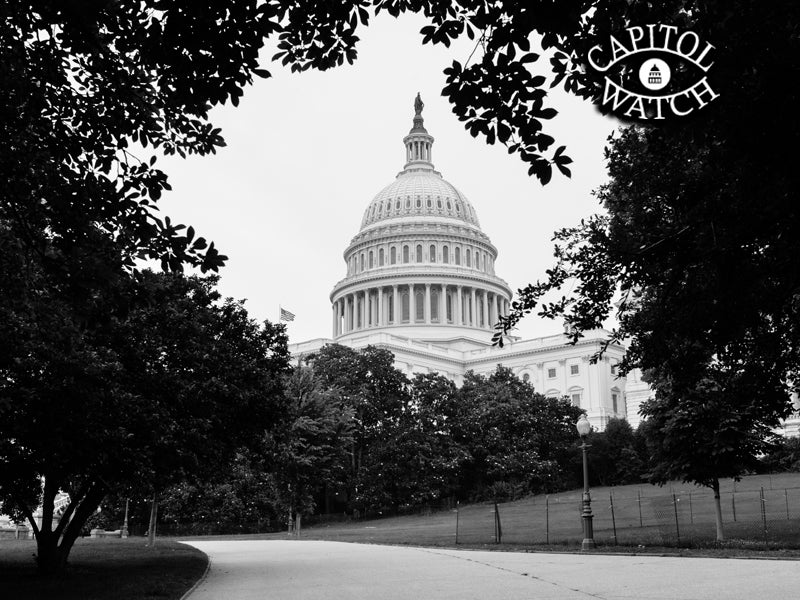Don’t Pollute Government Spending Bills with Toxic Riders
Lawmakers are trying to sneak provisions that threaten our air, water and wildlife into urgent government spending bills.

This page was published 8 years ago. Find the latest on Earthjustice’s work.
Debate has been swirling in Washington, D.C., lately about President Trump’s extreme budget proposal—and for good reason. It’s a radical plan that would gut funding for crucial environmental priorities like clean air and water and severely undercut efforts to keep communities healthy, protect the environment and combat climate change.
But even as we fight to prevent these budget cuts, we face a parallel and equally urgent threat. Congress is gearing up for one of its favorite traditions: hijacking the annual process of funding the government to try to ram through a slew of measures that threaten our communities and hurt the environment.
Congress is currently staring down an April 28th deadline to approve a number of must-pass spending bills that would fund the government and prevent a costly shutdown. Unfortunately, members of Congress are engaging in the same high-stakes game of chicken they’ve played in the past by threatening to attach dangerous, ideological provisions to these crucial bills. It’s a cynical maneuver aimed at ramming through controversial policy changes that would never pass on their own.
Members of Congress are engaging in the same high-stakes game of chicken they’ve played in the past by threatening to attach dangerous, ideological provisions to these crucial bills.
Members of Congress kicked off this process last year by larding up fiscal year 2017 spending bills with nearly 150 anti-environmental riders targeting our drinking water, air quality, national monuments, imperiled wildlife and more. And this year, Congress is picking up right where it left off.
Lawmakers are negotiating their way through this gigantic list of fiscal year 2017 riders that threaten the air we breathe, the water we drink and the wildlands we treasure. One rider threatens to pollute streams that provide drinking water for one in three Americans. Another blocks the implementation of a crucial new safeguard to clean up smog. Another provision puts taxpayers on the hook for cleaning up toxic waste dumps, instead of the polluters responsible for the mess. Yet another targets federal protections for certain populations of gray wolves. The list goes on and on.
Demanding highly controversial, anti-environmental policies as the price for avoiding a shutdown isn’t governing – it’s extortion.
Make no mistake: Demanding highly controversial, anti-environmental policies as the price for avoiding a shutdown isn’t governing – it’s extortion.
Our message to the lawmakers pushing these measures is simple: No poison pill riders should ever be included in a deal to fund the government, including anti-environmental riders. Any major changes to environmental programs and protections should be debated on the merits and in the light of day, not buried in the fine print of major, must-pass bills that are jammed through Congress at the 11th hour without public scrutiny or debate.
ABOUT THIS SERIES
The 45th U.S. president, Donald J. Trump, is bent on gutting environmental protections, and—with a polluter-friendly Congress at his side—he’ll likely do everything he can to dismantle our fundamental right to a healthy environment. The Capitol Watch blog series will shine a light on these political attacks from Congress and the Trump administration, as well as the work of Earthjustice and our allies to hold them accountable.
Established in 1989, Earthjustice's Policy & Legislation team works with champions in Congress to craft legislation that supports and extends our legal gains.